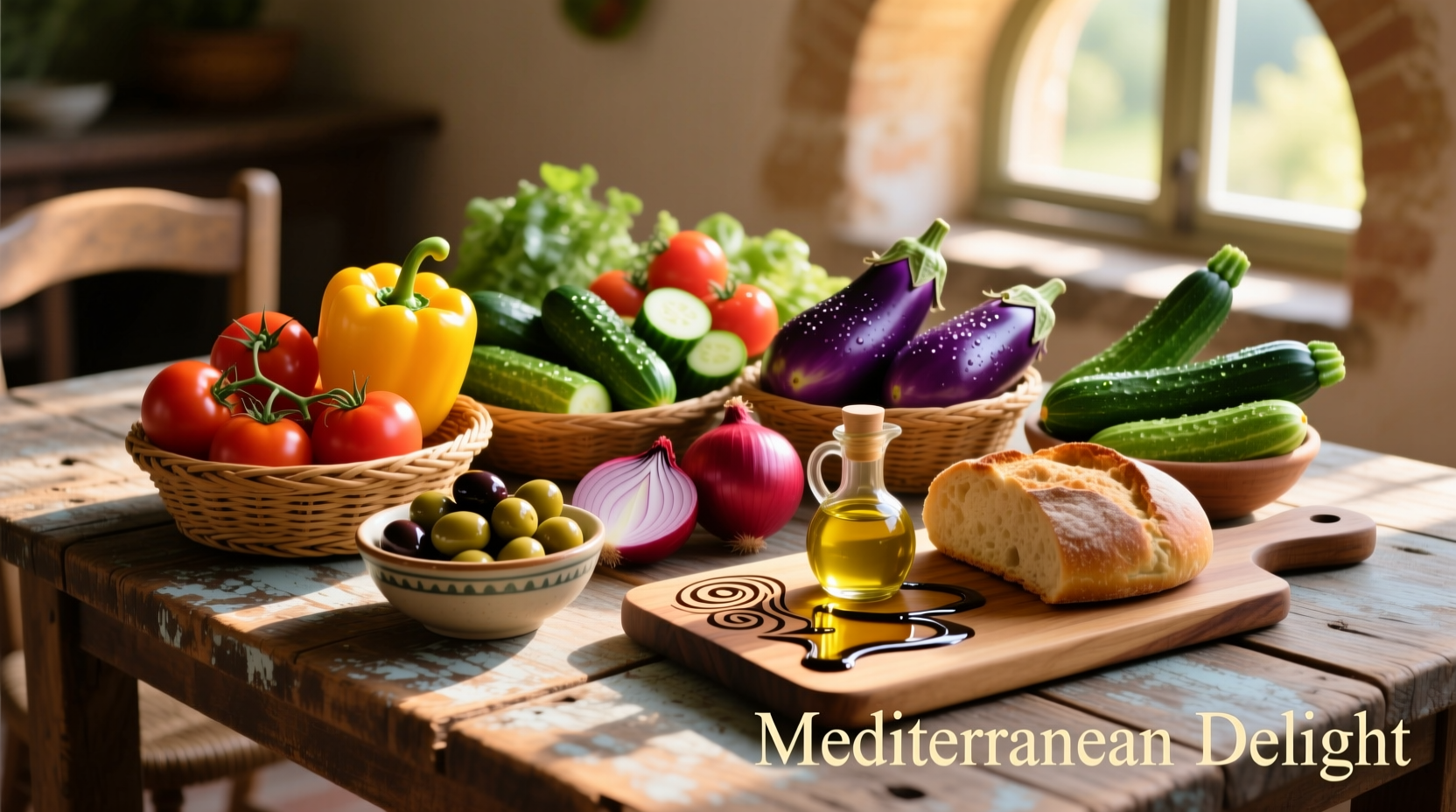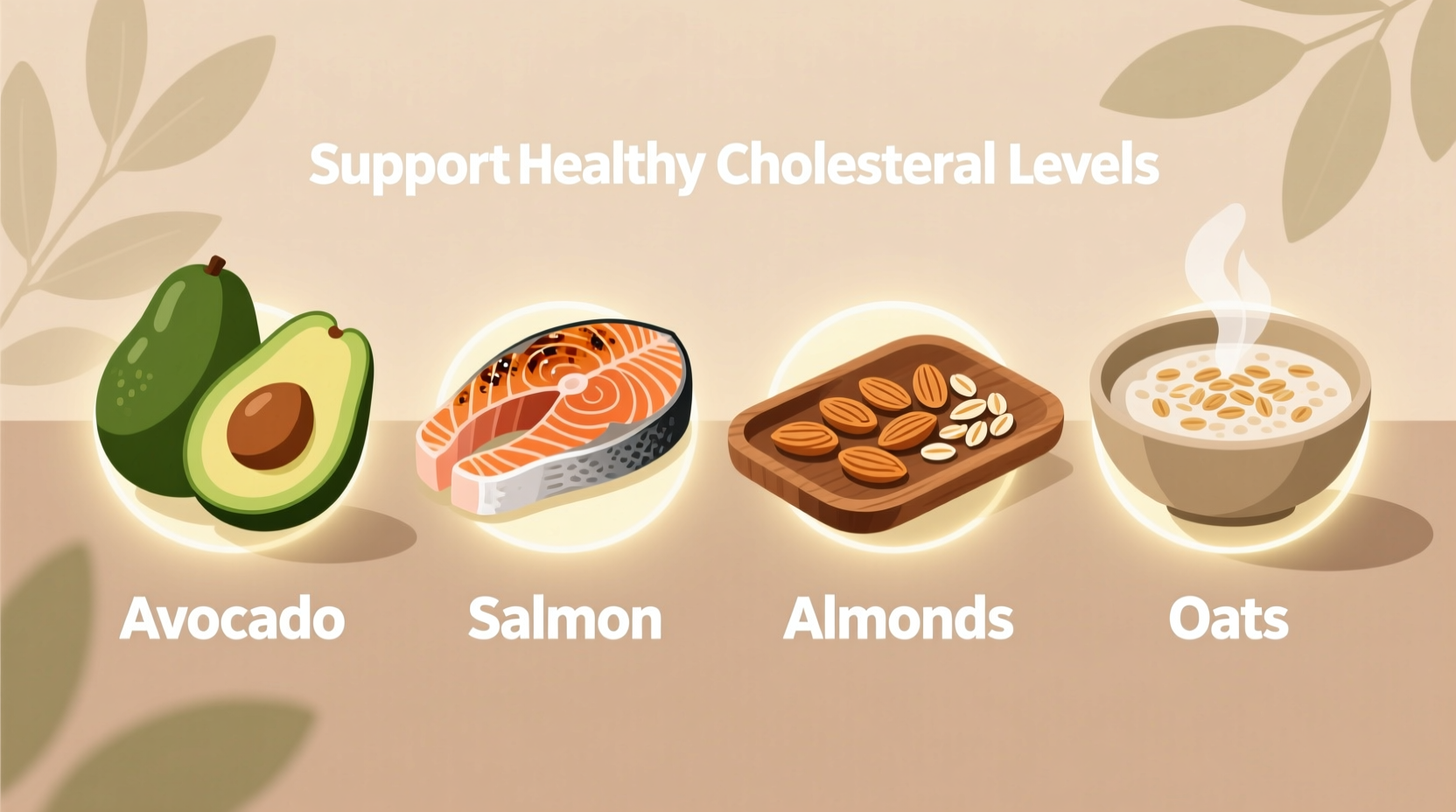Your Complete Guide to Foods That Improve Cholesterol Levels
Understanding which foods support healthy cholesterol levels is crucial for cardiovascular health. Contrary to popular belief, dietary cholesterol itself (found in eggs and shellfish) has less impact on blood cholesterol than the types of fats you consume. The real game-changers are foods rich in unsaturated fats, fiber, and plant compounds that actively improve your cholesterol profile.
Why Cholesterol Matters: Beyond the Basics
Cholesterol often gets labeled as "bad," but your body actually needs it for essential functions. The critical distinction lies between:
- HDL (High-Density Lipoprotein) - Removes excess cholesterol from arteries
- LDL (Low-Density Lipoprotein) - Contributes to plaque buildup when elevated
- Triglycerides - Another blood fat that impacts heart disease risk
According to the American Heart Association, an HDL level below 40 mg/dL for men and 50 mg/dL for women increases heart disease risk, while levels above 60 mg/dL are considered protective.
Foods That Boost HDL (The "Good" Cholesterol)
These foods have demonstrated the strongest evidence for increasing HDL cholesterol levels:
Fatty Fish: Nature's Omega-3 Powerhouse
Fatty fish like salmon, mackerel, herring, and sardines contain high levels of omega-3 fatty acids. Research published in the Journal of Clinical Lipidology shows that consuming fatty fish 2-3 times weekly can increase HDL by 5-10% while simultaneously lowering triglycerides.
Avocados: The Creamy Cholesterol Helper
A 2015 study in the Journal of the American Heart Association found that including one Hass avocado daily in a moderate-fat diet significantly improved LDL and total cholesterol levels compared to a similar diet without avocado. The monounsaturated fats and beta-sitosterol in avocados help reduce cholesterol absorption.
Nuts: Small Packages, Big Benefits
Walnuts, almonds, and pistachios consistently show positive effects on cholesterol profiles. A comprehensive review in Nutrients concluded that daily nut consumption (about 1.5 ounces) can increase HDL by 3-5% while decreasing LDL by 5-7%. The combination of healthy fats, fiber, and plant sterols creates this beneficial effect.
| Foods That Boost HDL | Key Components | Recommended Serving | Frequency |
|---|---|---|---|
| Fatty fish (salmon, mackerel) | Omega-3 fatty acids (EPA/DHA) | 3.5 ounces cooked | 2-3 times/week |
| Avocados | Monounsaturated fats, beta-sitosterol | ½ medium avocado | Daily |
| Walnuts | Alpha-linolenic acid, plant sterols | 1 ounce (14 halves) | Daily |
| Olive oil | Monounsaturated fats, polyphenols | 2 tablespoons | Daily |
Foods That Lower LDL (The "Bad" Cholesterol)
While increasing HDL is important, reducing LDL cholesterol often has a more significant impact on heart disease risk. These foods excel at lowering LDL:
Olive Oil: The Mediterranean Miracle
Extra virgin olive oil contains powerful polyphenols that prevent LDL oxidation - a key step in plaque formation. The PREDIMED study, a landmark trial published in the New England Journal of Medicine, found that a Mediterranean diet supplemented with extra virgin olive oil reduced cardiovascular events by 30% compared to a low-fat diet.

Beans and Legumes: Fiber Powerhouses
According to research in the Canadian Medical Association Journal, consuming just ½ cup of legumes daily can reduce LDL cholesterol by 6.6% over six weeks. The soluble fiber in beans binds to cholesterol in the digestive tract, preventing absorption.
Whole Grains: The Oat Advantage
Oats contain beta-glucan, a type of soluble fiber that's particularly effective at lowering LDL. The FDA has approved a health claim stating that 3 grams of oat beta-glucan daily can reduce the risk of heart disease. One cup of cooked oats provides about 2 grams of beta-glucan.
Practical Implementation: Building a Cholesterol-Friendly Diet
Instead of focusing on individual "superfoods," consider these dietary patterns proven to improve cholesterol profiles:
The Mediterranean Approach
This eating pattern emphasizes:
- Olive oil as primary fat source
- Daily vegetables and fruits
- Weekly fish and poultry
- Minimal red meat
- Regular nut consumption
The Mediterranean diet consistently shows the strongest evidence for improving multiple heart disease risk factors simultaneously.
Common Misconceptions About Cholesterol and Food
Several persistent myths continue to confuse consumers:
- Eggs raise cholesterol significantly - For most people, dietary cholesterol has minimal impact on blood cholesterol compared to saturated fats
- All saturated fats are equally harmful - The source matters; coconut oil and dairy fats may have different effects than processed food fats
- Low-fat means heart-healthy - Many low-fat products replace fat with sugar, which can negatively impact triglycerides
When Food Alone Isn't Enough: Important Considerations
While diet plays a crucial role, several factors affect how foods impact your cholesterol:
- Genetics - Some people (about 25%) are hyper-responders to dietary cholesterol
- Overall dietary pattern - Isolated foods work best within a balanced eating pattern
- Physical activity - Regular exercise independently boosts HDL levels
- Weight management - Excess abdominal fat negatively impacts cholesterol metabolism
If you have a family history of high cholesterol or existing heart disease, consult with a healthcare provider for personalized recommendations. For most people, however, incorporating these cholesterol-friendly foods can make a meaningful difference in cardiovascular health.
Frequently Asked Questions
Do eggs increase bad cholesterol?
For most people, eating one whole egg daily doesn't significantly raise LDL cholesterol. The American Heart Association considers one egg per day acceptable within a heart-healthy diet for healthy individuals, though those with diabetes or existing heart disease may need to limit consumption.
How quickly can diet changes improve cholesterol levels?
Significant improvements in cholesterol levels typically take 4-12 weeks of consistent dietary changes. The PREDIMED study showed measurable improvements in LDL and HDL within 3 months of adopting a Mediterranean diet pattern.
Are plant sterols really effective for lowering cholesterol?
Yes, plant sterols can reduce LDL cholesterol by 7-10% when consumed at the recommended 2 grams daily. They work by blocking cholesterol absorption in the digestive tract. Many margarines, orange juices, and supplements contain added plant sterols.
Can I eat nuts if I'm trying to lower cholesterol despite their fat content?
Absolutely. Nuts contain primarily heart-healthy unsaturated fats. Research shows that daily nut consumption (about 1.5 ounces) lowers LDL cholesterol by 5-7% while improving overall cholesterol profiles. The key is portion control, as nuts are calorie-dense.
Does alcohol affect good cholesterol levels?
Moderate alcohol consumption (up to one drink daily for women, two for men) can raise HDL cholesterol by 5-10%. However, the American Heart Association doesn't recommend starting to drink for this benefit due to other health risks. Safer ways to boost HDL include exercise and the dietary changes outlined in this article.











 浙公网安备
33010002000092号
浙公网安备
33010002000092号 浙B2-20120091-4
浙B2-20120091-4